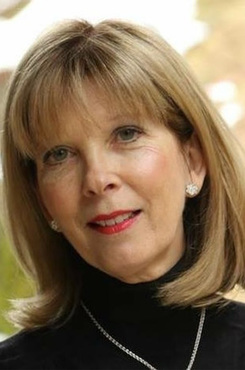Q&A: Fragomen Taps Big Four's PwC for Its Newest Partner
Julia Onslow-Cole led PwC into an alliance with Fragomen. Now she's taken her global immigration practice there.
February 07, 2019 at 04:38 PM
6 minute read
 (Courtesy photo)
(Courtesy photo)
As a partner, legal markets leader and head of global immigration at PwC, Julia Onslow-Cole handled breaking crises and long-term strategic moves.
She directed the emergency evacuation of oil and gas sector employees from Egypt, Libya and Algeria during the Arab Spring and the 2013 Algerian hostage crisis. And she led PwC in discussions that resulted in a groundbreaking alliance with Fragomen, the global immigration law firm, in 2018.
 Julia Onslow-Cole (Courtesy Photo)
Julia Onslow-Cole (Courtesy Photo)Now, Onslow-Cole has taken her practice to Fragomen, where she's a partner in the firm's government strategies and compliance group. She spoke to The American Lawyer about her move, the alliance and how law firms can differentiate themselves from new competitors.
You led PwC's global immigration team for 11 years. Why move to Fragomen?
I joined PwC before it had a global immigration practice. I was just there over 11 years and I built that up to a really big global practice. A smaller part of what I did was global government liaison work. But in addition to that, at PwC, I was managing this enormous practice, and the move to Fragomen gave me an opportunity to really specialize and focus on global government strategies and compliance.
Can you talk about the day-to-day of what your new role entails?
Historically, clients had the ability to move people around the world relatively easily.
We have a perfect storm where clients are finding that the moves that they want people to make are generally short-term moves. You don't get long-term assignments any more. You need to move very quickly in these markets and move people overseas for very short periods. You get people that are contracted, people who are not on the normal employment relationships that you've had before. And, on the other hand, you've got governments who are very protectionist about their own resident labor markets and are changing immigration laws very, very quickly.
If you overlay that with all the crises we're seeing: not just political crises like hostages, but those sort of things that are related to weather—fog, clouds, volcanoes—then it's a very, very difficult place to navigate.
So what we're doing is using the deep expertise at Fragomen across the whole of the world, bringing that together for clients in proactive way, and saying, “At the moment you're trying to move lots of people into this country, actually, we think perhaps it might be better if you use a different route, or maybe you should think about moving them into this other country. Maybe you could use this European directive to move them into, say, this part of Europe and from there you could use a different directive to move them elsewhere.”
Was this move something that was discussed or expected as a possibility when working on the alliance, or was this something that came up following the announcement of the alliance?
It was at the tail end of the alliance.
It's been over four months since the alliance was announced. What has the experience been so far, and how have Fragomen's clients responded?
Clients have responded very positively about the alliance. It's different from the other alliances that the other Big Four [firms] have done in the sense that it's a looser alliance, and it's really led by clients. It gives clients the option to work with us both, in the right examples—it's not fixed.
We feel that having something that's more fluid—if a client wants to take the opportunity with us jointly, then they can—that is the right thing.
The market is changing so much, the environment is changing so much. We can work together in many different ways, and we're exploring with individual clients how we can work together with them.
How do law firms, whether they are specialty firms or full service firms, compete against the Big Four's advantages when it comes to scale and resources for investment?
I actually think that at the actual heart of it, clients want to make sure that they have really good solid legal advice.
They're looking for deep legal expertise on a number of issues, and I think law firms have that deep legal expertise.
Should traditional law firms fear the Big Four?
The Big Four are just part of a changing landscape. Years and years ago, when I had just left university, I remember reading this sentence: “The only thing that changes is everything.”
I remember thinking, “How true that was.” There's moments in life when everything's really going well—just hold it at this point, please. But there's always going to be some change. If it wasn't the Big Four, it would be something else.
When you talk about the future of work, I always say to clients, “Agility, versatility in this world at this current time is everything.” I say that to my kids, “If you can just be agile and versatile and keep picking up new skills, and you can benefit from new experiences.”
That's how it is. It's not one big thing coming around the corner, like the Big Four. It's just so many different things, isn't it? So they're just part of the changing landscape.
This interview has been condensed and edited for clarity.
Read More:
PwC, Fragomen Leaders Discuss Why They Joined Forces
PwC Forms Alliance With NY Firm, Furthering Big Four's Ambitions in Law
Deloitte Will Acquire Part of US Law Firm in New Legal Venture
This content has been archived. It is available through our partners, LexisNexis® and Bloomberg Law.
To view this content, please continue to their sites.
Not a Lexis Subscriber?
Subscribe Now
Not a Bloomberg Law Subscriber?
Subscribe Now
NOT FOR REPRINT
© 2025 ALM Global, LLC, All Rights Reserved. Request academic re-use from www.copyright.com. All other uses, submit a request to [email protected]. For more information visit Asset & Logo Licensing.
You Might Like
View All
About to Become a Partner? Here's What to Know About Your Newfound Wealth
10 minute read
Holland & Knight Hires Chief Business Development and Marketing Officer From EY
2 minute read
Gibson Dunn Lands EY GC for New Practice Advising Accounting Firms

Bonuses and Beyond: Law Firms Wrap Up Lucrative Year With Record-High Rewards
Trending Stories
Who Got The Work
Michael G. Bongiorno, Andrew Scott Dulberg and Elizabeth E. Driscoll from Wilmer Cutler Pickering Hale and Dorr have stepped in to represent Symbotic Inc., an A.I.-enabled technology platform that focuses on increasing supply chain efficiency, and other defendants in a pending shareholder derivative lawsuit. The case, filed Oct. 2 in Massachusetts District Court by the Brown Law Firm on behalf of Stephen Austen, accuses certain officers and directors of misleading investors in regard to Symbotic's potential for margin growth by failing to disclose that the company was not equipped to timely deploy its systems or manage expenses through project delays. The case, assigned to U.S. District Judge Nathaniel M. Gorton, is 1:24-cv-12522, Austen v. Cohen et al.
Who Got The Work
Edmund Polubinski and Marie Killmond of Davis Polk & Wardwell have entered appearances for data platform software development company MongoDB and other defendants in a pending shareholder derivative lawsuit. The action, filed Oct. 7 in New York Southern District Court by the Brown Law Firm, accuses the company's directors and/or officers of falsely expressing confidence in the company’s restructuring of its sales incentive plan and downplaying the severity of decreases in its upfront commitments. The case is 1:24-cv-07594, Roy v. Ittycheria et al.
Who Got The Work
Amy O. Bruchs and Kurt F. Ellison of Michael Best & Friedrich have entered appearances for Epic Systems Corp. in a pending employment discrimination lawsuit. The suit was filed Sept. 7 in Wisconsin Western District Court by Levine Eisberner LLC and Siri & Glimstad on behalf of a project manager who claims that he was wrongfully terminated after applying for a religious exemption to the defendant's COVID-19 vaccine mandate. The case, assigned to U.S. Magistrate Judge Anita Marie Boor, is 3:24-cv-00630, Secker, Nathan v. Epic Systems Corporation.
Who Got The Work
David X. Sullivan, Thomas J. Finn and Gregory A. Hall from McCarter & English have entered appearances for Sunrun Installation Services in a pending civil rights lawsuit. The complaint was filed Sept. 4 in Connecticut District Court by attorney Robert M. Berke on behalf of former employee George Edward Steins, who was arrested and charged with employing an unregistered home improvement salesperson. The complaint alleges that had Sunrun informed the Connecticut Department of Consumer Protection that the plaintiff's employment had ended in 2017 and that he no longer held Sunrun's home improvement contractor license, he would not have been hit with charges, which were dismissed in May 2024. The case, assigned to U.S. District Judge Jeffrey A. Meyer, is 3:24-cv-01423, Steins v. Sunrun, Inc. et al.
Who Got The Work
Greenberg Traurig shareholder Joshua L. Raskin has entered an appearance for boohoo.com UK Ltd. in a pending patent infringement lawsuit. The suit, filed Sept. 3 in Texas Eastern District Court by Rozier Hardt McDonough on behalf of Alto Dynamics, asserts five patents related to an online shopping platform. The case, assigned to U.S. District Judge Rodney Gilstrap, is 2:24-cv-00719, Alto Dynamics, LLC v. boohoo.com UK Limited.
Featured Firms
Law Offices of Gary Martin Hays & Associates, P.C.
(470) 294-1674
Law Offices of Mark E. Salomone
(857) 444-6468
Smith & Hassler
(713) 739-1250









